
Diabetes: Causes, Testing and Natural Support Strategies
Diabetes is a modern-day epidemic with the American Diabetes Association claiming 38.4 million Americans (11.6% of the population) have diabetes and another 97.6 million adults (38%) have insulin-resistant pre-diabetes (1). The vast majority of diabetes is the type II variety known as degenerative diabetes. Research has shown that degenerative diabetes is an inflammatory disorder and is completely preventable & reversible through an anti-inflammatory lifestyle.
When we eat sugar or carbohydrates our digestive system converts these larger molecules into glucose which is then absorbed into the bloodstream and taken to every cell of the body. Blood sugar fuels the cells keeping them healthy. For healthy function it is critical to maintain stable blood sugar levels. In this article, you will discover natural support strategies to stabilize your blood sugar levels.
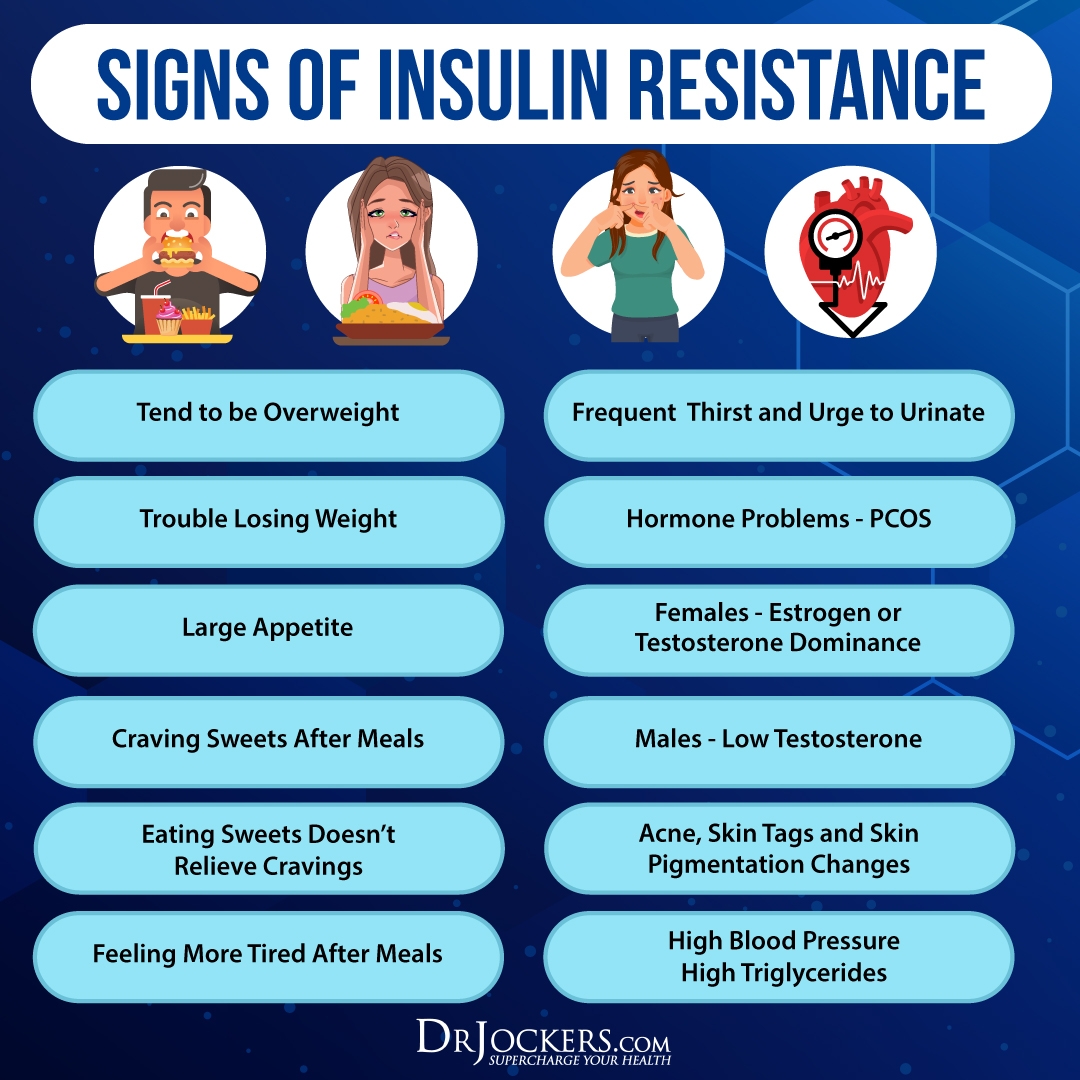
Diabetes and Your Blood Sugar:
Diabetes is classically diagnosed by one of three different mechanisms.
Hemoglobin A1C (HbA1C): This is a form of hemoglobin (Hb) or red blood cell that is measured to identify the average plasma glucose concentration over a 3 month period of time. When Hb is exposed to plasma glucose there is a glycation reaction that takes place. As blood sugar increases the fraction of glycated Hb increases.
Healthy HbA1C levels are considered below 5.7 although most functional medicine doctors like to see them below 5.4 and ideally below 5.2. HbA1C levels above 6.5 are clinically diagnosed as diabetes mellitus. From 5.7-6.5 it is considered pre-diabetic.
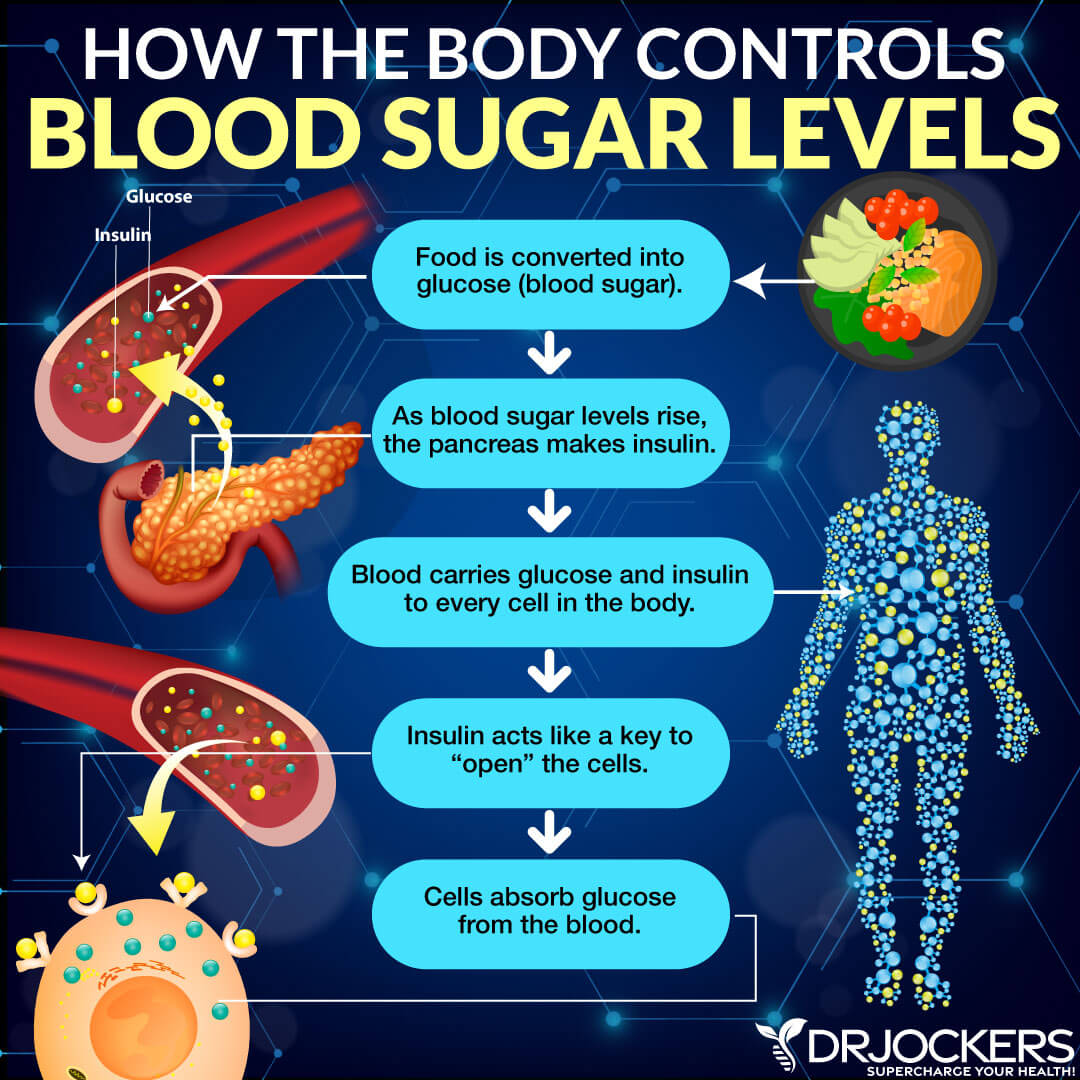
Fasting Plasma Glucose Test (FPG): This test measures fasting morning blood sugar levels. The individual is instructed not to eat any food within 12 hours of the test. So the individual typically told to skip breakfast and the test is usually performed in the mid-morning.
Fasting blood sugar under 100 mg/dl is considered normal and healthy although most functional medicine doctors want to see this under 90 mg/dl. The range from 100-126 mg/dl is considered pre-diabetic and over 126 mg/dl is considered diabetic
Oral Glucose Tolerance Test (OGTT): This test measures an individual’s response to a glucose load. They are instructed fast similar to the FPG and then they are given a measured dose of glucose (75g for adults) to consume within 5 minutes and the blood is measured both immediately after the drink is finished and 2 hours afterwards. The 2 hour measurement is major recording.
Normal OGTT levels should be under 140 mg/dl although most functional medicine doctors want to see them under 120 mg/dl. The pre-diabetic range is from 140-200 mg/dl and over 200 mg/dl is considered diabetic.
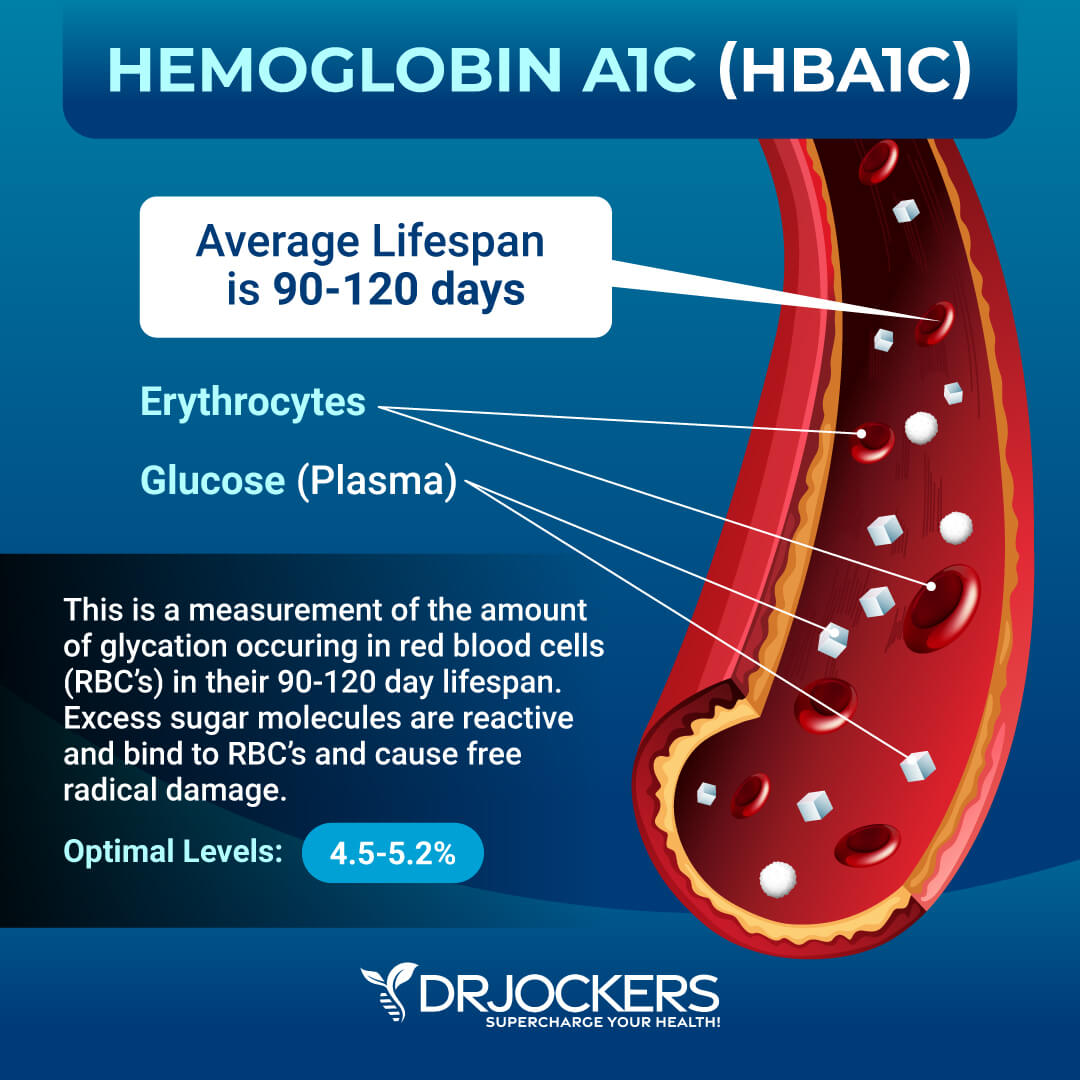
Stabilize Your Blood Sugar Naturally:
Stabilizing blood sugar is largely controlled by the pancreas through a hormone called insulin. When the body recognizes that blood sugar is elevating the pancreas releases insulin. Insulin then acts as the key that fits the cell receptor door lock.
Once insulin interacts with the cellular door it opens and the sugar is able to enter the cell. When the working rhythm between the pancreas, insulin, and the cells are out of harmony it produces insulin resistance and eventually degenerative diabetes.
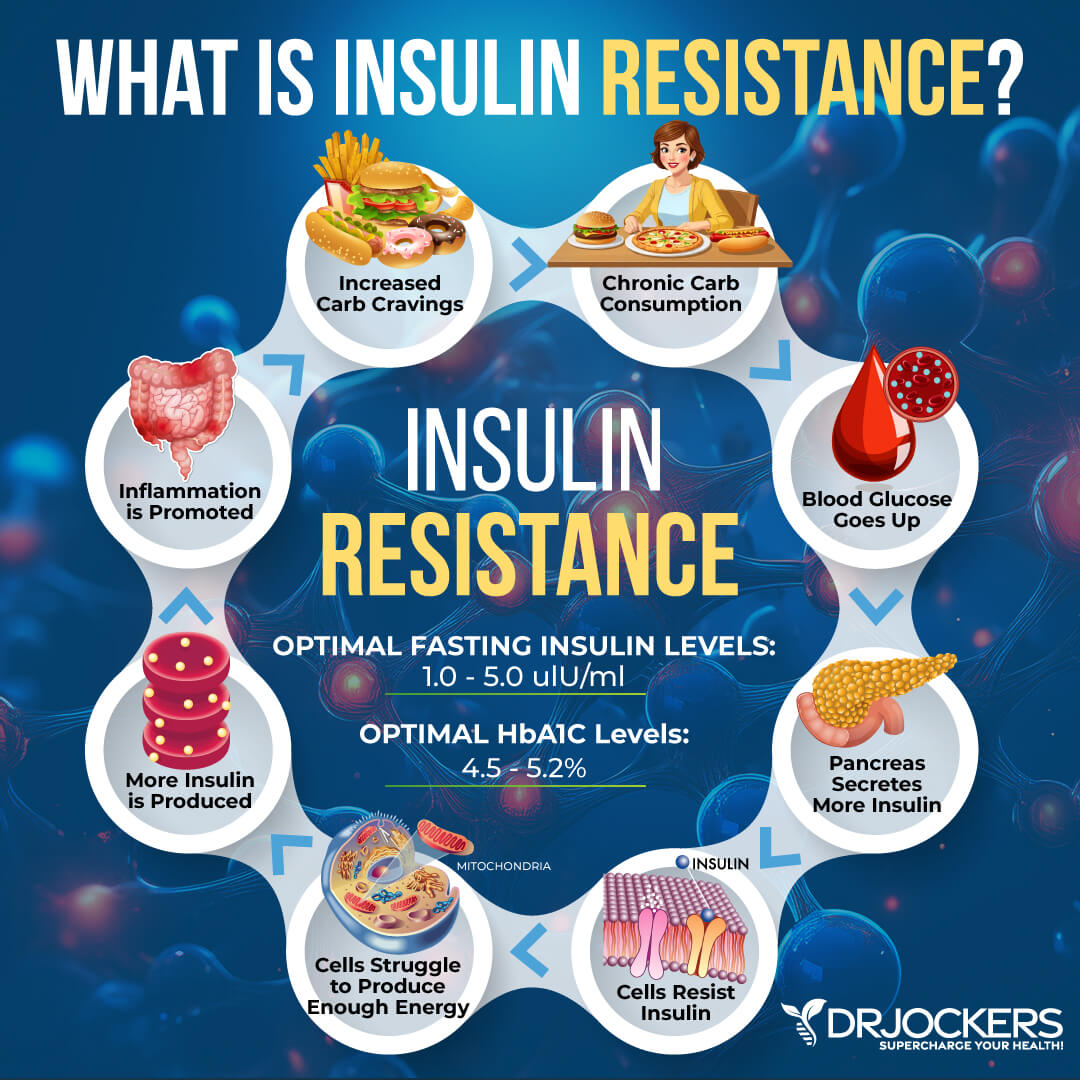
High Insulin and Inflammation:
A poor diet and a sedentary lifestyle are the two biggest contributing factors for diabetes. When we eat carbohydrate rich foods we create a large demand on the body for insulin production. Insulin is a storage hormone that is also a precursor for inflammatory prostaglandins (cellular messengers).
Bouts of elevated insulin put the body into fat storage metabolism, and this increases inflammatory processes within the body. This increased inflammation damages the cell membranes of the body causing insulin receptor distortion that leads to insulin resistance (2).
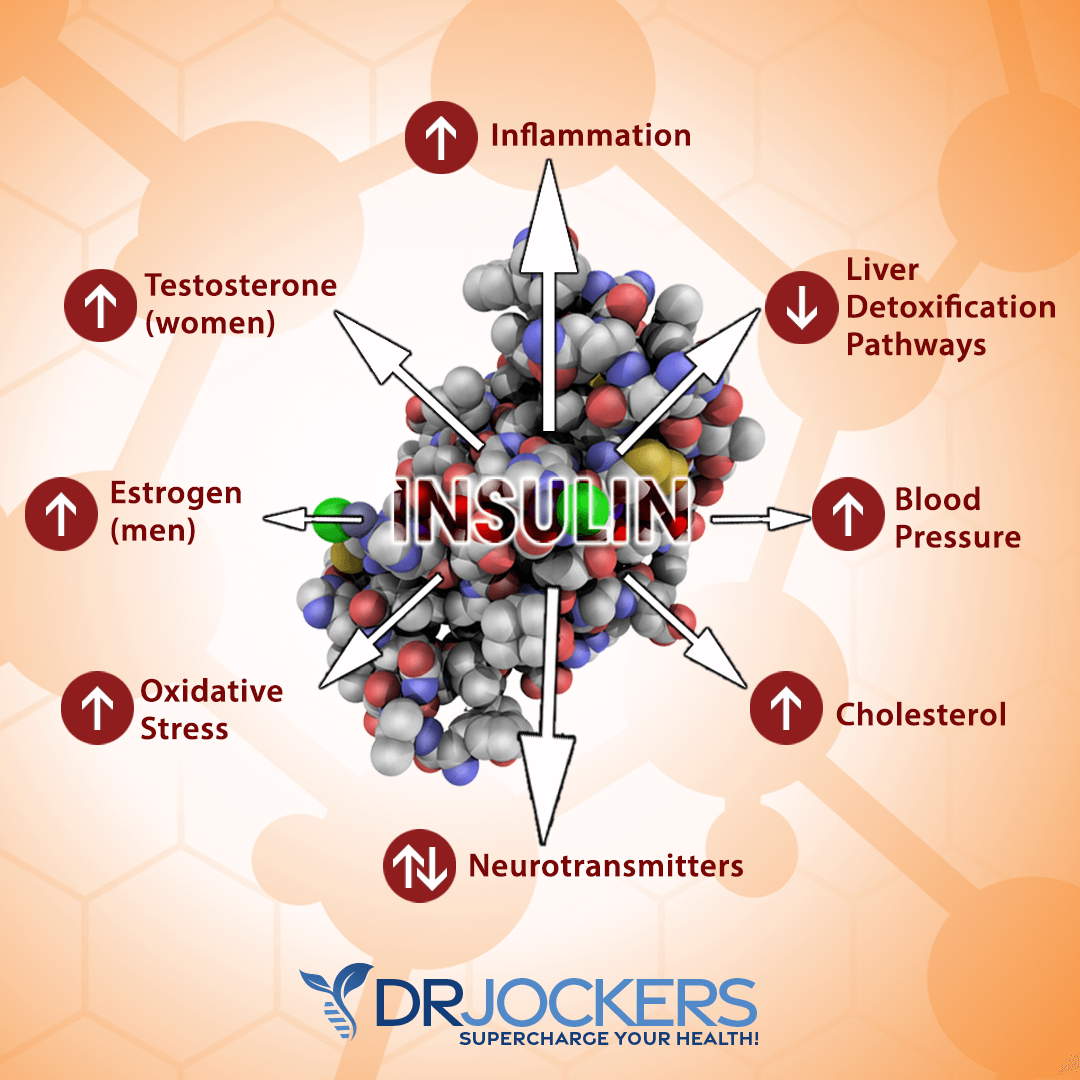
Elevated Blood Sugar Accelerates Aging:
With inadequate insulin signaling the blood sugar remains elevated. When blood sugar stays elevated for too long it interacts with enzymes and other protein molecules creating dangerous substances called Advanced Glycolytic End Products (AGE’s).
AGE’s are highly inflammatory and destructive as they damage tissue throughout the body including nerve fibers and blood vessels (3, 4). This is the reason for the neurological and cardiovascular complications involved with diabetes.
Digestive Health and Diabetes
The gut microbiome affects numerous biological functions throughout the body and its characterization has become a major research area in biomedicine. Recent studies have suggested that gut bacteria play a fundamental role in diseases such as obesity, diabetes, and cardiovascular disease (5).
Researchers found that microbiota that produces high levels of the short chain fatty acid butyrate are very low in individuals with type II diabetes compared to healthy individuals. Butyrate is a preferred fuel for the enterocytes of the small and large intestines. Low levels of butyrate are also linked to increased levels of gut induced inflammation or endotoxemia (6, 7).
This research indicates that butyrate and other short chain fatty acids exert a profound immunometabolic effect on the body. Many experts believe that as a ‘gut signature’ becomes more evident in type II diabetes, a better understanding of the role of the microbiota in diabetes might provide new aspects regarding its pathophysiological relevance and pave the way for new therapeutic principles (9).
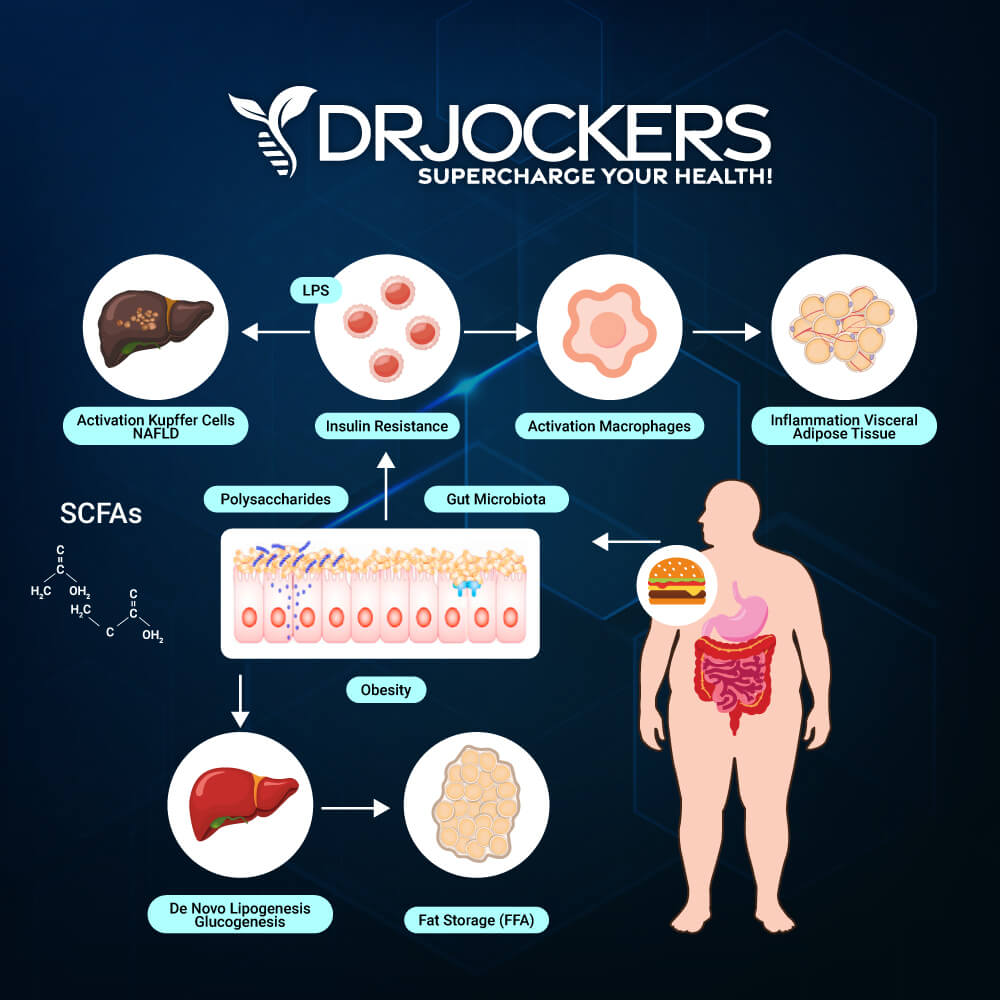
Reduce Cellular Inflammation:
Prevention and reversal of degenerative diabetes depend on our ability to reduce inflammation and enhance cellular healing processes. This begins with a diet rich in phytonutrient dense vegetables, healthy fat, and clean protein sources.
I recommend a ketogenic style diet that puts the body into a state of mild-ketosis. This is much different than ketoacidosis which is a pathological state that takes place when an individual is completely unable to produce insulin at all.
Mild-ketosis as explained in this article is a fantastic physiological state that profoundly improves the state of cellular healing. Research has revealed that a ketogenic diet is very effective in improving blood sugar levels in diabetic individuals (8, 9, 10).
This nutrition plan has a foundation of healthy fat sources that include coconut products, avocados, olive oil, nuts, seeds, & purified omega-3 fish oil supplements. Healthy protein includes wild-caught fish, grass-fed red meat, and free range chicken, turkey, and eggs. These protein and fat sources are extraordinarily critical for rebuilding healthy cell membranes with normalized insulin receptor activity.
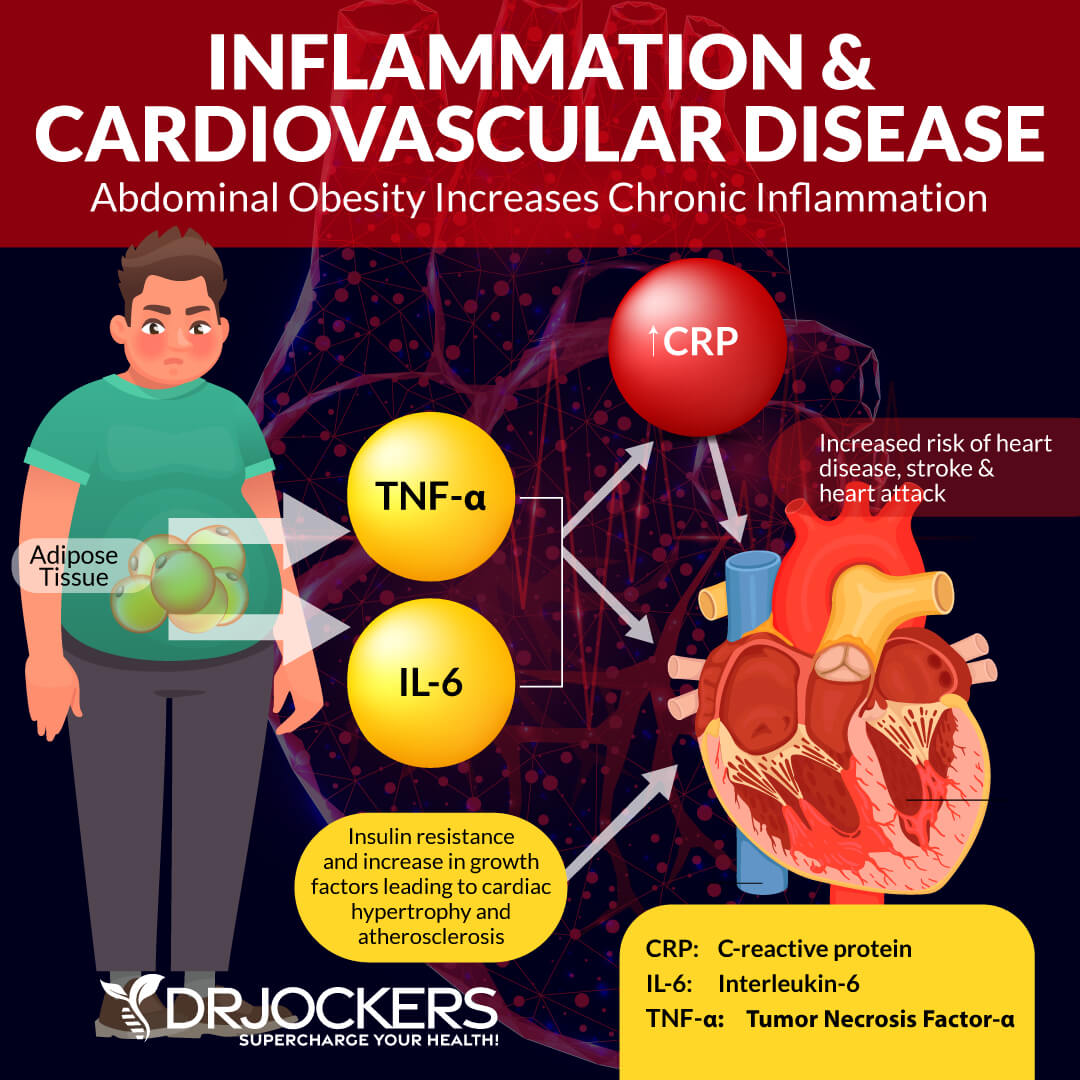
Load Up on Antioxidant Rich Herbs:
Individuals with elevated blood sugar levels have cell membranes that are under high amounts of oxidative stress (11). To reduce this stress and adapt and heal effectively, it is especially important for these individuals to load up on antioxidant rich foods.
Non-starchy vegetables, low-glycemic fruit, herbs, teas, essential oils, and fermented foods are great sources of antioxidants. Some of the most powerful anti-inflammatory herbs include cinnamon, turmeric, green tea, and ginger. These should be included as often as possible to help stabilize blood sugar and reduce cellular inflammation.
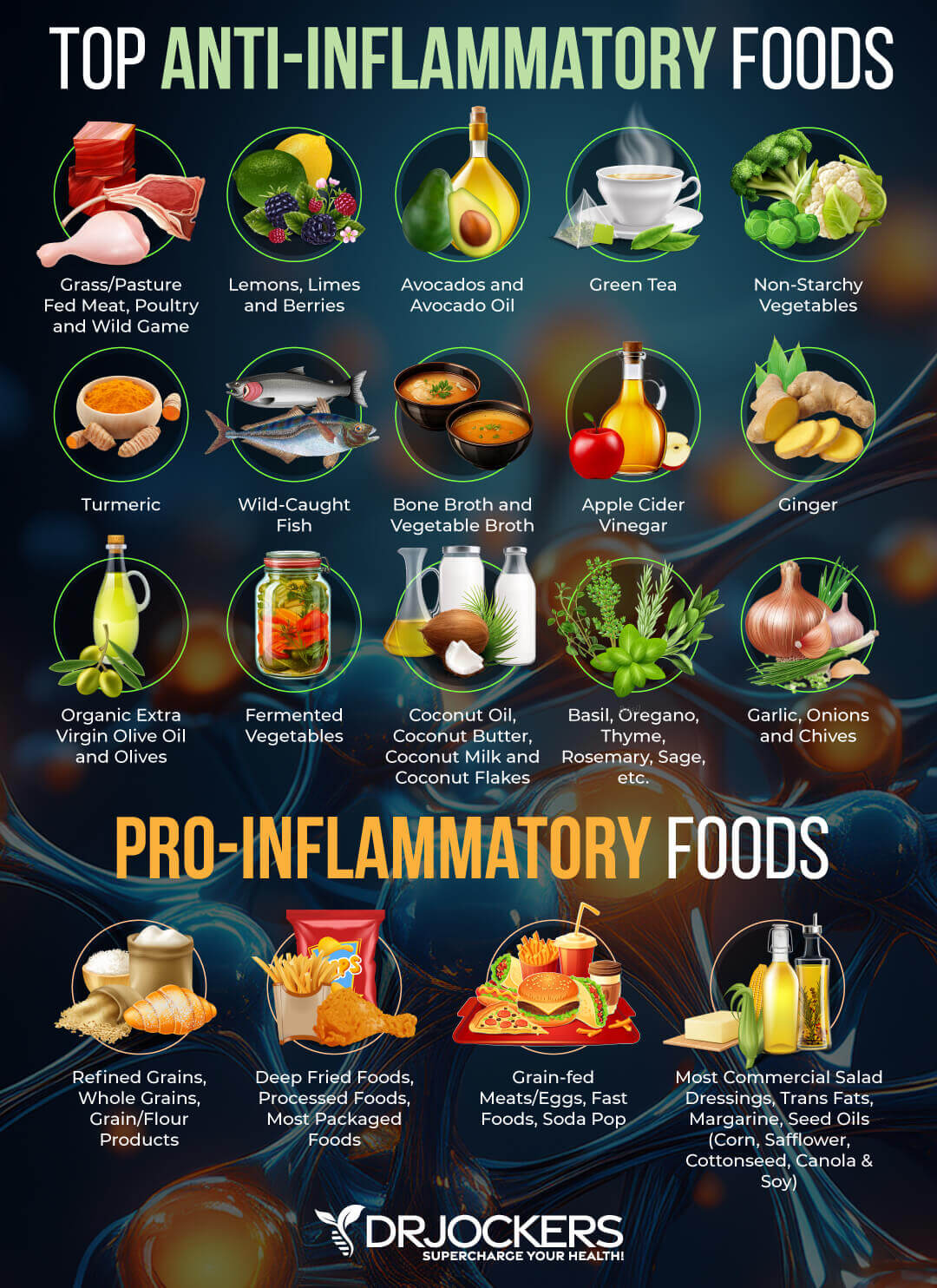
Resistance Training to Switch Your Metabolism:
High intensity interval training and resistance training are the best forms of exercise to reverse diabetes. Due to the high intensity, this form of exercise utilizes all the stored sugar in the liver & muscles during the exercise bout. In response, the cells of the muscle and liver take-on an insulin-like effect and have a significantly increased affinity for glucose to fill their storage tanks.
Additionally, this form of training enhances growth hormone secretion (HGH) through the next 24-36 hours enabling the body to burn more fat for energy (12). This HGH effect also enhances the body’s ability to heal the damaged pancreas and insulin receptors on the cell wall.
Chromium Deficiency and Diabetes:
Insulin resistance also takes the form of several nutrient deficiencies including chromium, biotin, and vanadium. Chromium based studies have repeatedly demonstrated improvement in blood sugar levels, insulin sensitivity, and lipid profiles. Chromium modulates the cells intracellular signaling systems to effectively lower blood glucose (13, 14, 15, 16).
Biotin, in very large doses (5-15 mgs) enhances the effects of enzymes involved in glucose metabolism. One small study even demonstrated the reversal of diabetic neuropathy (17) Chromium and biotin synergistically improve glucose tolerance (18)
One of the most effective natural treatments for diabetes is vanadium. This unique trace mineral works to lower blood sugar by mimicking insulin and improving the cells’ sensitivity to insulin (19, 20, 21).
12 Strategies For Blood Sugar Control:
Here are the best action steps to get started with on your journey for blood sugar control. You should always consult with your physician before stopping or changing medications or taking on new health strategies.
The supplements I discuss are not at this time FDA approved to prevent, mitigate, treat, or cure diabetes and should not be confused as such. However, they can be helpful for supporting key nutrients and supporting a healthy inflammatory process.
Additionally, you should be working with a functional health practitioner to help guide you through these strategies. This is not an exhaustive list and there are other natural therapeutic strategies that I and functional health practitioners will utilize to help individuals with Diabetes.
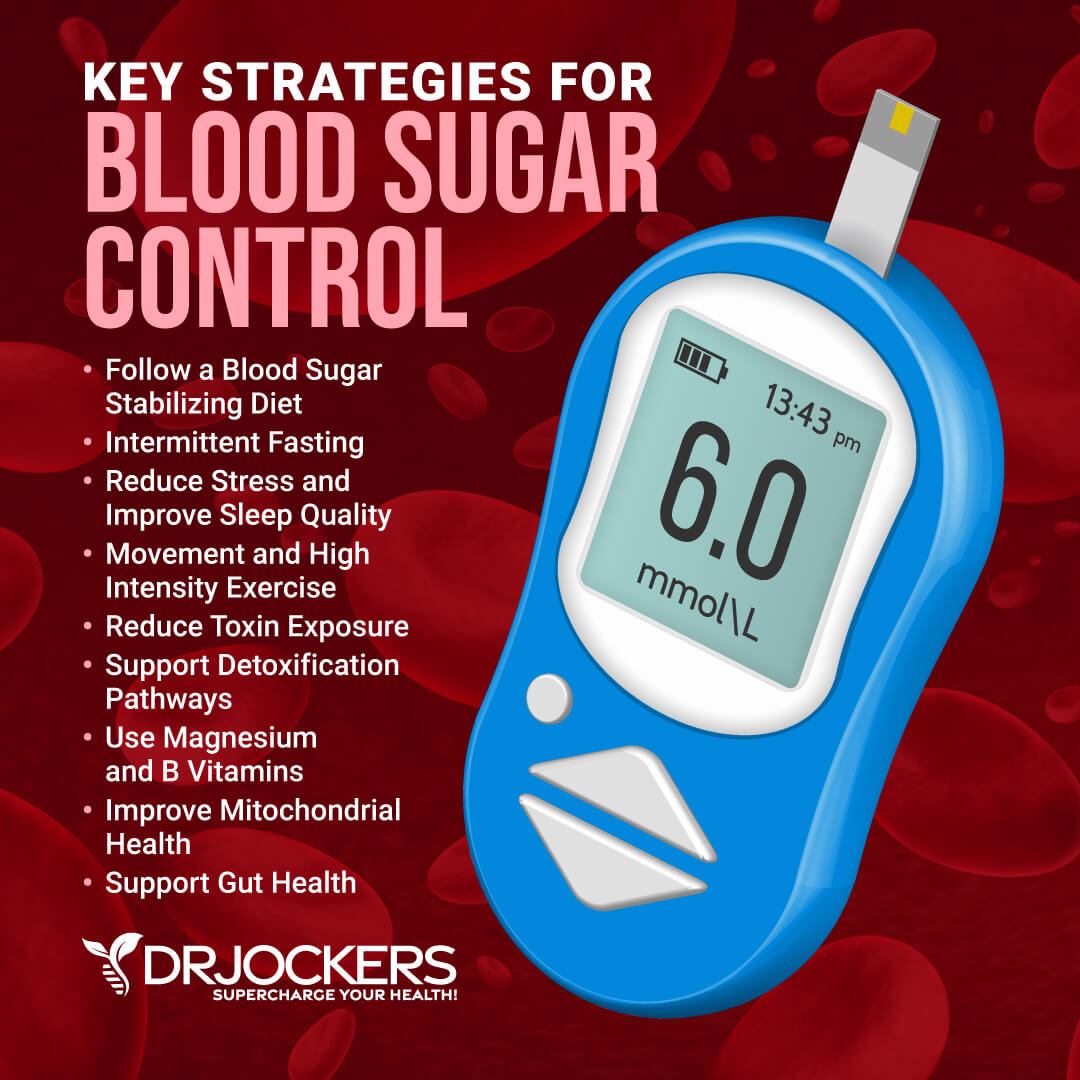
Follow a Ketogenic Diet:
Eating an anti-inflammatory diet rich in nutrient-dense foods is the first best thing you can do to improve your blood sugar levels. First, eliminate all inflammatory foods, including refined sugar, gluten, refined oils, deep-fried and processed foods, conventional dairy, grain-fed meat and eggs, soda and sugary drinks, and foods that you are sensitive to.
Instead, I recommend eating an anti-inflammatory diet and loading up on greens, vegetables, low glycemic index fruits, herbs, spices, healthy fats, grass-fed meat, and wild-caught fish. I also recommend a ketogenic approach for individuals with diabetes and insulin resistance.
Getting into ketosis will enhance mitochondrial function and reduce inflammation throughout the body. Learn more about following a ketogenic nutrition plan here and avoid exposure to herbicides and pesticides by choosing organic food as much as possible.
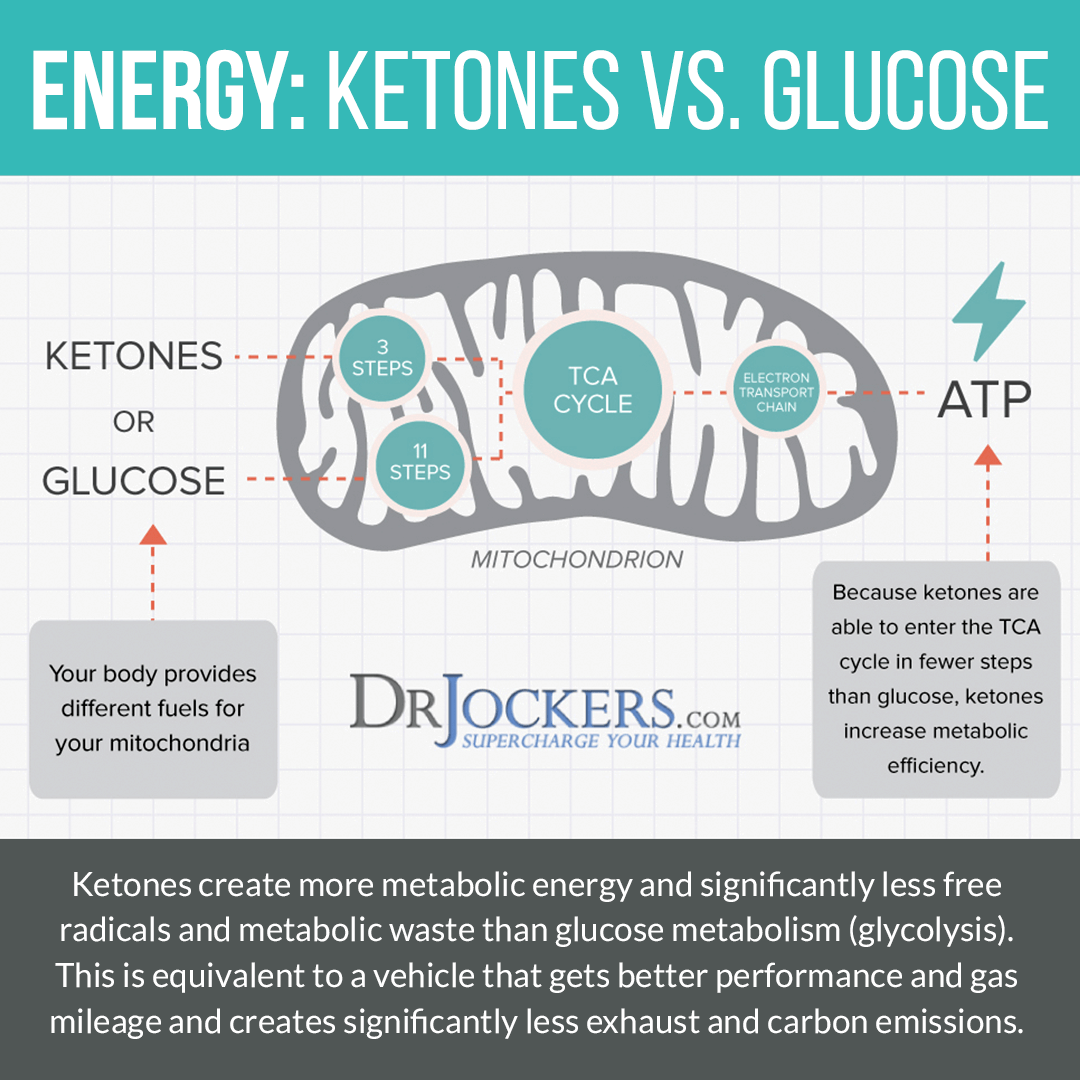
Intermittent Fasting:
Intermittent fasting is a form of fasting cycle between not eating (fasting) and eating (feasting) over a period of time. The benefits of intermittent fasting benefits include cellular repair, autophagy, immune regulation, inflammation levels, and insulin sensitivity.
It also helps to lower the risk of chronic diseases such as diabetes (22). Going 16–18 hours between dinner and breakfast is one of the best ways to improve mitochondrial production. Your body improves energy efficiency by increasing and strengthening the mitochondria during periods of fasting. Consume your meals in a 6-8 hour window such as 11MA-7PM or 12–6PM.
When you do this, you enhance cellular healing and blood sugar regulation. To learn more about the benefits of intermittent fasting and best intermittent fasting practices, I recommend this article.
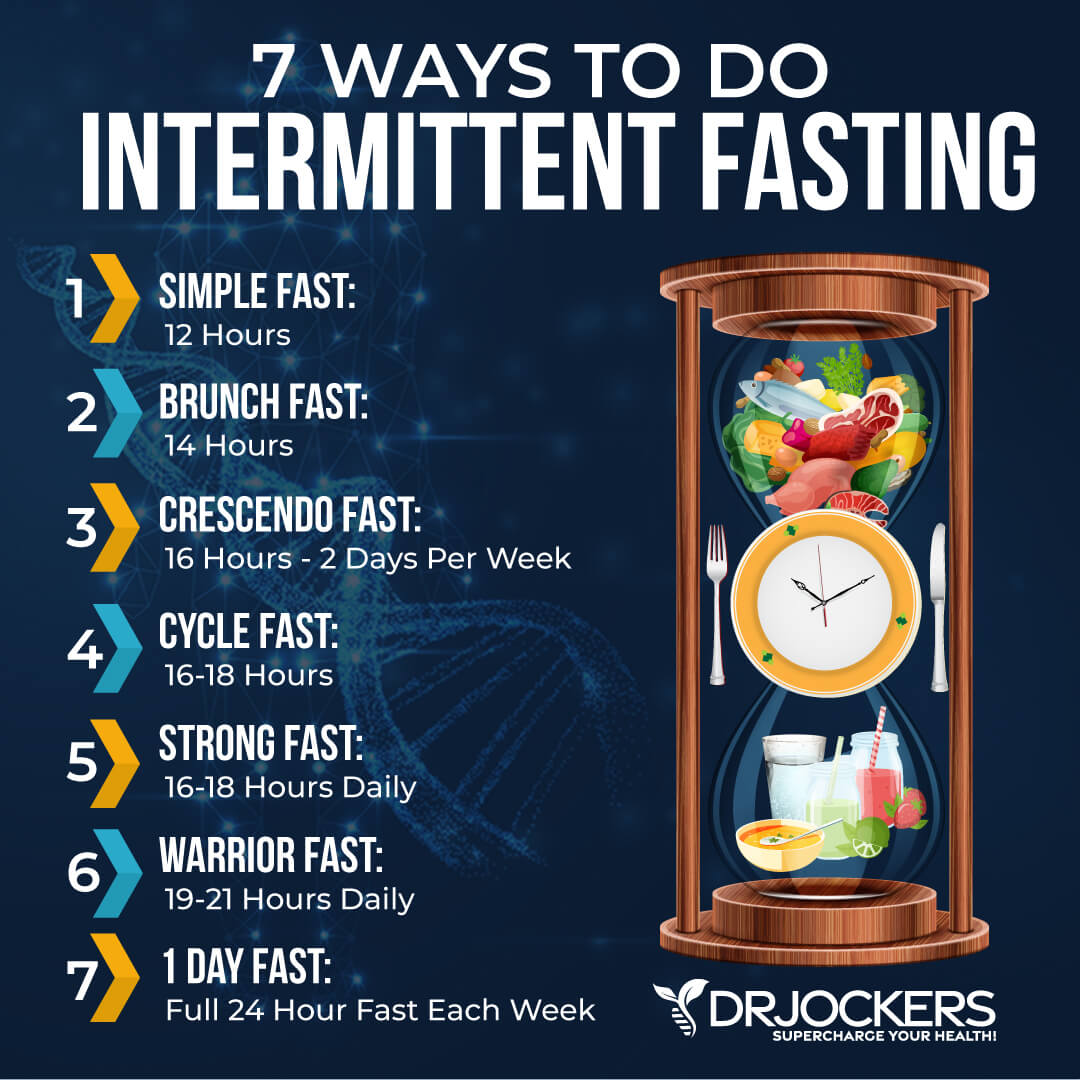
Reduce Stress:
Reducing stress is a critical for reducing inflammation and improving blood sugar stability. I recommend that you reduce stressors from your life as much as possible. Turn off the news, and only look at it once a day or a few times a week for a specific period. Reduce your social media use and time on the internet.
Avoid people and situations that bring you down. Surround yourself with loving and uplifting people. Engage in uplifting and relaxation-promoting activities. Read, try some arts and crafts, play cards or board games, sing, and dance.
Spend time in nature and do some grounding walking barefoot on grass. Practice daily gratitude and try positive affirmations. Practice self-love and laugh with friends and family. Meditate, pray, journal, and try daily breathwork. Be grateful and smile more.

Improve Your Sleep:
Prioritizing good sleep is just as important as reducing your stress levels. Develop a regular schedule of going to bed and getting up at the same time every day to support your circadian rhythms.
Avoid electronics, sugar, caffeine, heavy foods, and stress close to the bed. Engage in relaxing activities, including stretching, relaxing baths, meditation, and prayer. Make sure that you have a supporting bed, pillow, and bedding, and sleep in a dark calming room.

Reduce Toxin Exposure
Reducing your toxic exposure is critical for improving your blood sugar and insulin levels. Buy organic food as much as possible. Stop using conventional beauty, body, and household products, and replace them with organic, natural, or homemade alternatives.
Use glass, stainless steel, wood, and bamboo products instead of plastic. Spend time in nature and breathe in the fresh air. Use a good indoor air filtration system. Make sure that you drink clean, toxin-free water by using a high-quality reverse osmosis system.

Support Detoxification Pathways
It is not enough to put good things into your body, you have to make sure that the bad things come out as well. Drink plenty of water to support detoxification through sweating and urine. Support your detoxification pathways to protect your body from brain inflammation.
I recommend using infrared saunas to promote detoxification through sweating. Try rebounding and dry-skin brushing to support your lymphatic pathways. Support two major detoxifying organs, your kidneys and liver with herbs like milk thistle, parsley, dandelion, and bioactive carbons which can penetrate and remove toxins from deep within the tissues and cells.
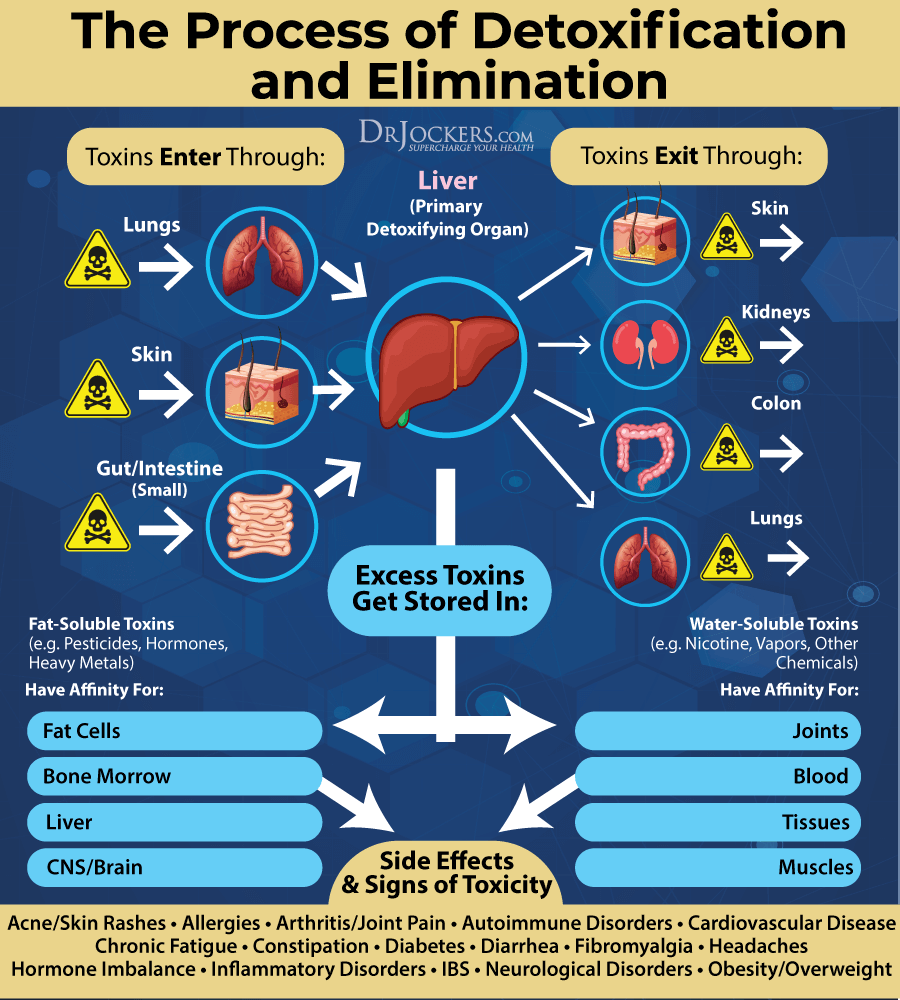
Include Magnesium & B Vitamin Rich Foods:
Magnesium helps to improve blood sugar signaling patterns and cellular energy levels. The best magnesium and B vitamin rich foods include dark green leafy veggies, avocados, grass-fed animal products, raw cacao, and pumpkin seeds.
You can also do Epsom salt baths to support your magnesium levels. It would also be wise to supplement with a good magnesium and B complex supplement. Look for magnesium L-threonate which is the best form of magnesium for crossing the blood-brain barrier.
When it comes to B vitamins, it is best to look for one with pre-activated forms such as methyl-folate, methyl-cobalamin (B12), Pyridoxal-5-Phosphate form of B6, and Riboflavin-5-phosphate form of vitamin B2. The methyl groups are in the active form and will be better utilized by the body.

Use Antioxidant Rich Herbs:
Carminatives are herbs that help to improve digestive health by reducing pathogens in the gut, stimulating the production of stomach acid, bile, and pancreatic enzymes, and modulating the gut microbiome.
Examples of these herbs include turmeric, ginger, oregano, garlic, basil, thyme and rosemary. These herbs help to improve digestion, reduce inflammation, and support a healthy brain. There are a number of ways to use these that I discuss in the following image. I like putting herbs on foods, using herbal teas, fermented foods, and essential oils.
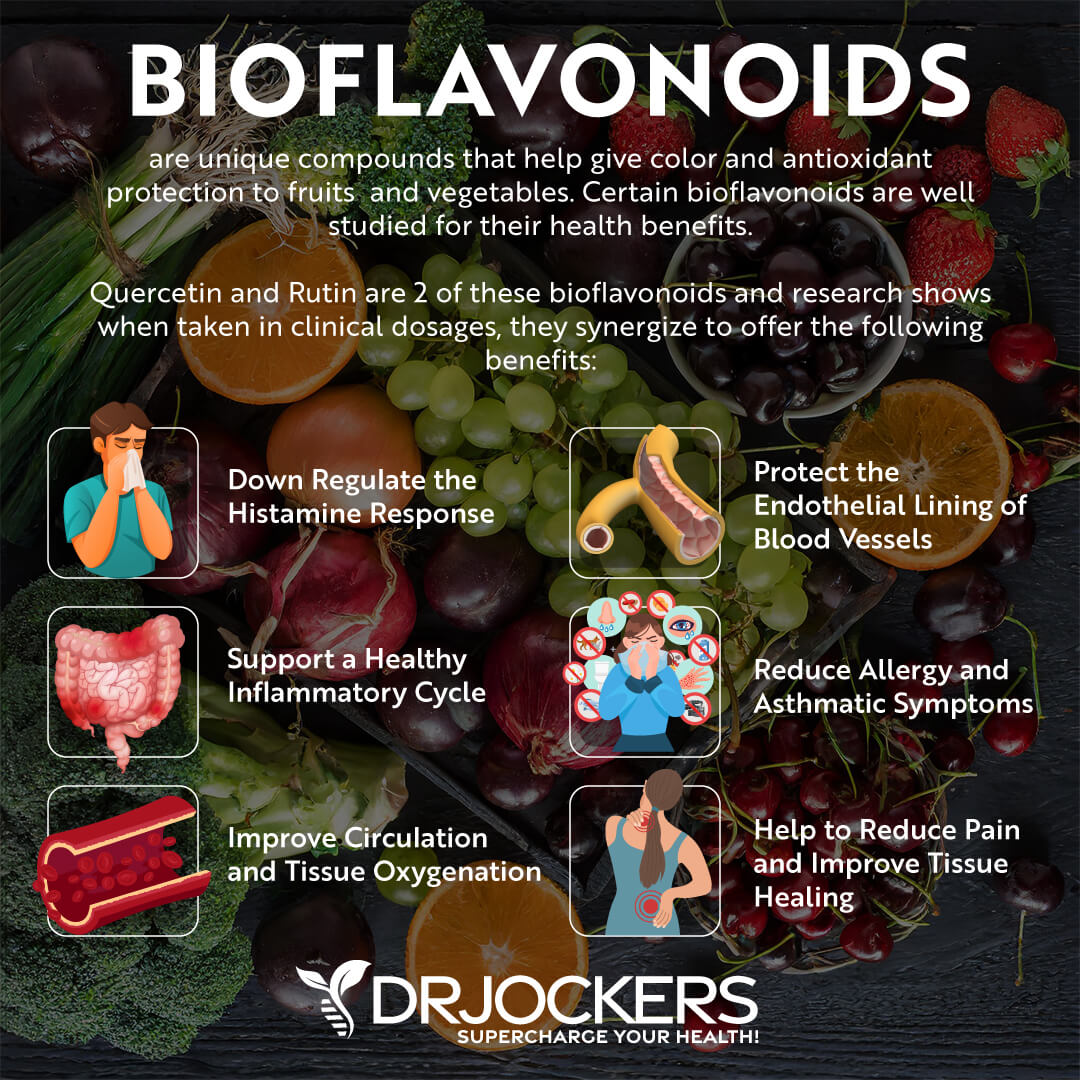
Improve Your Mitochondria:
The mitochondria are the energy powerhouses of every cell. When someone has diabetes, it is a clinical sign that they have dysfunctional activity going on in the mitochondria.
Support your mitochondria with clinical doses of CoQ10, L-carnitine, N-acetyl cysteine, creatine monohydrate, B vitamins, magnesium, alpha lipoic acid, and D-ribose. You can find mitochondrial support supplements that have most if not all of these key nutrients.
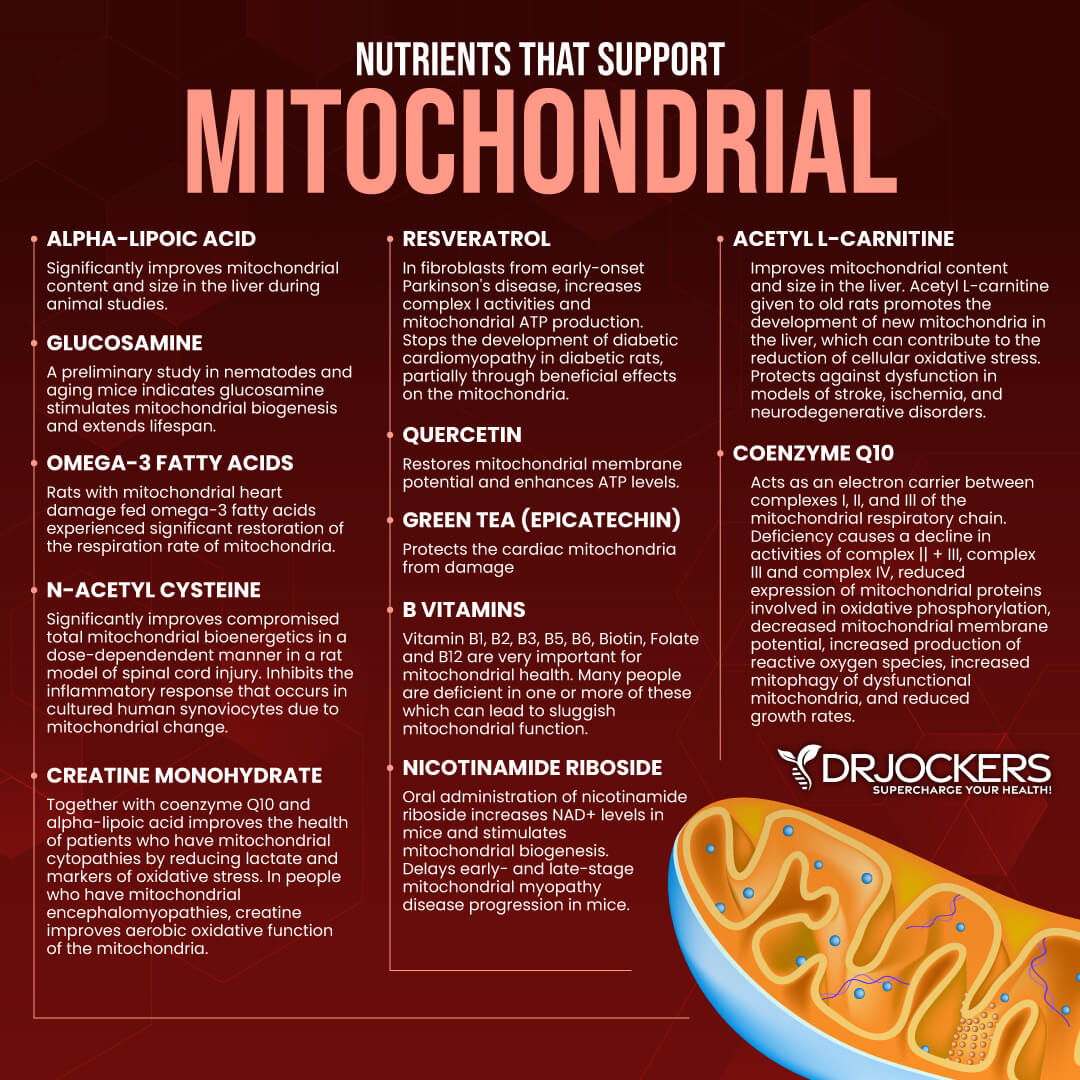
Optimize Your Vitamin D:
Low vitamin D3 is associated with chronic inflammation and insulin resistance. Vitamin D is arguably one of the most powerful nutrients responsible for modulating and coordinating the immune system.
Vitamin D maintains the normal resting levels of reactive oxygen species (ROS) that are elevated in the β-cells during diabetes. Vitamin D also has a very significant role in maintaining the epigenome. Epigenetic alterations are a feature of diabetes by which many diabetes-related genes are inactivated by hypermethylation.
Vitamin D acts to prevent such hypermethylation by increasing the expression of the DNA demethylases that prevent hypermethylation of multiple gene promoter regions of many diabetes-related genes. When Vitamin D is deficient, many of these processes begin to decline and this sets the stage for the onset of diseases such as diabetes (23).
A metanalysis published in June 2019, looked at 19 RCT studies involving 747 intervention subjects and 627 placebo controls. The results showed that compared with the control group, the short-term vitamin D supplementation group had a decline in hemoglobin A1c (HbA1c), insulin resistance, and insulin (24).
I typically recommend getting regular sun exposure and eating vitamin D rich foods like pasture-raised egg yolks, grass-fed beef or chicken liver, and grass-fed butter. I also recommend supplementing with around 1,000 IU per 25 lbs of body weight until you get to the desired levels of 50-100 ng/mL. It is best to get your 25-OH vitamin D3 levels tested at least twice per year to make sure you are at this ideal level.
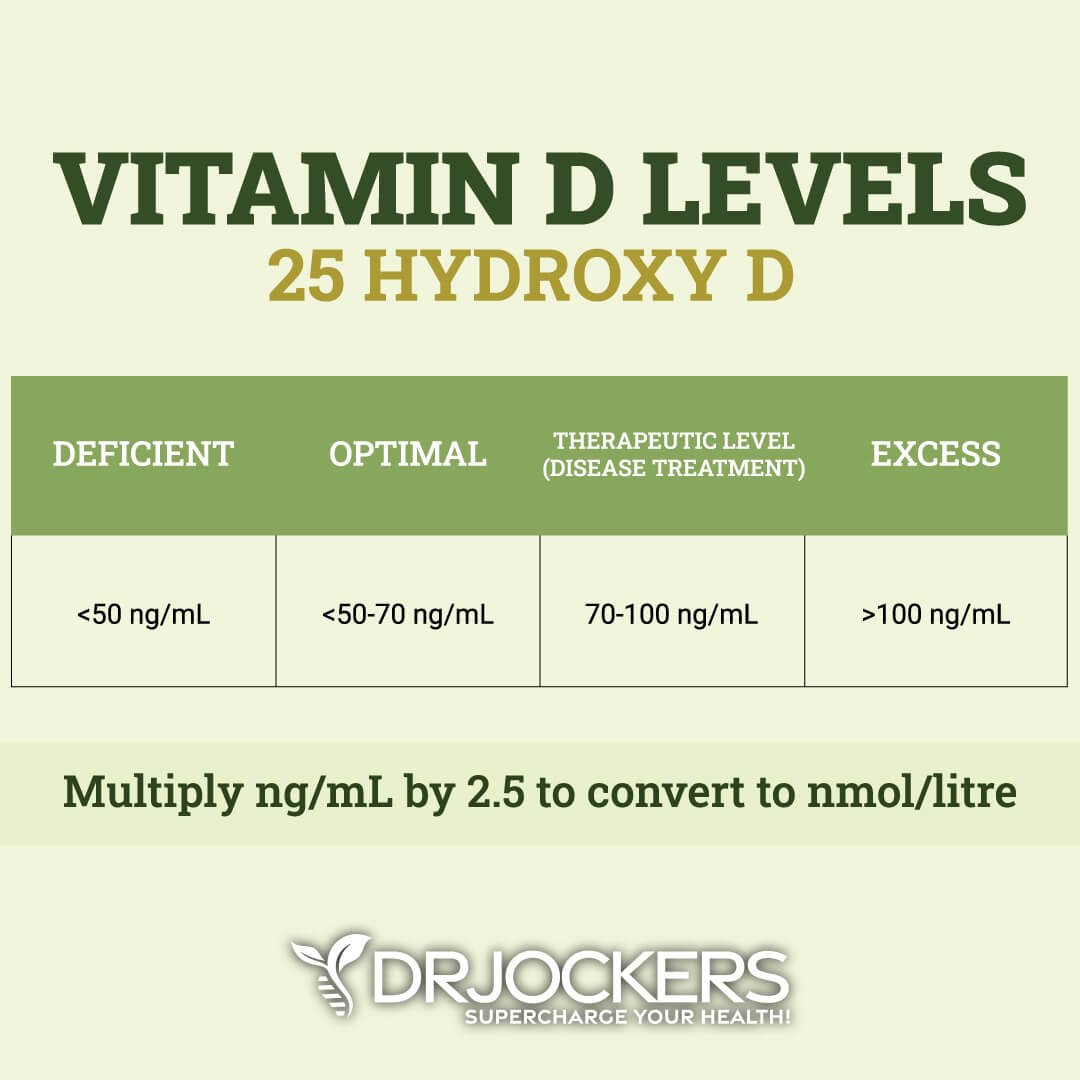
Supplement With Omega 3’s:
Omega 3 fatty acids and in particular the long chain variety EPA and DHA are critical for stabilizing blood sugar and improving insulin sensitivity. Consume grass-fed meat, grass-fed butter, wild-caught fish and spirulina to get it in your diet.
Plant based omega 3’s such as flax oil only contain the small chain omega 3 called ALA and do not have any DHA. It is very hard for our body to convert ALA into DHA so it is best to get a high quality fish or krill oil that is rich in EPA and DHA. You want to find a brand that is molecularly distilled to take out any heavy metals and other unwanted contaminants.
Be sure to discuss with your physician before using fish oils have a blood thinning effect and can be contraindicated if you are on blood thinning medications.
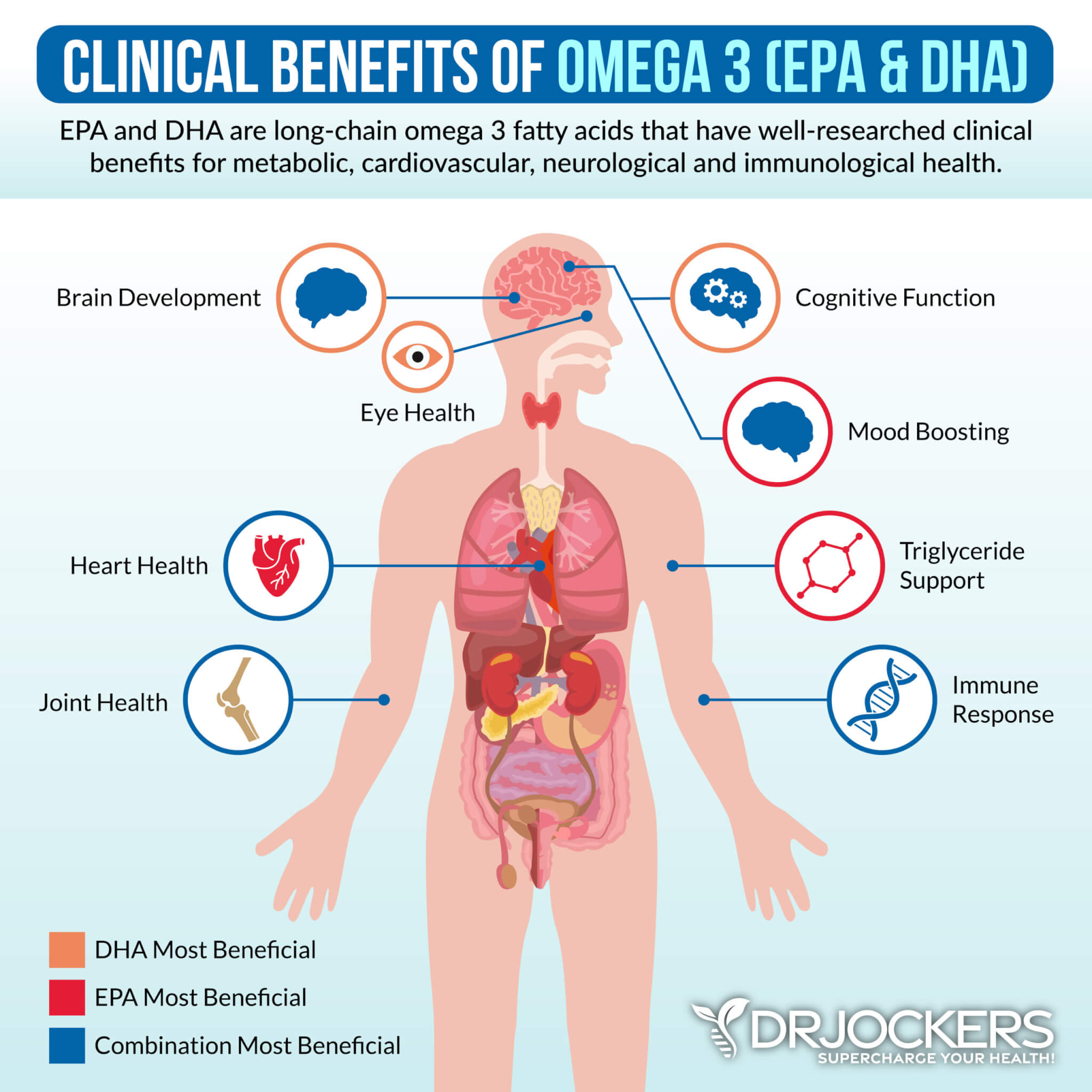
Movement and High Intensity Exercise:
High intensity training, especially resistance training boosts testosterone. Do large muscle groups, and compound exercises such as squats, lunges, bench presses, T-bar rows, pull-ups, overhead presses, etc. Be sure to lift heavy!!
The more muscle tissue that is intensely stimulated, the more testosterone production will go up. Be sure to get good rest between workouts. I like to do an upper body day, a lower body day, and then a day off. Then back to upper body and lower body and then another day off…and so on and so on.
In addition, be sure to get out and move your body by taking a walk, playing with your kids, or engaging in a fun hobby that keeps you moving.
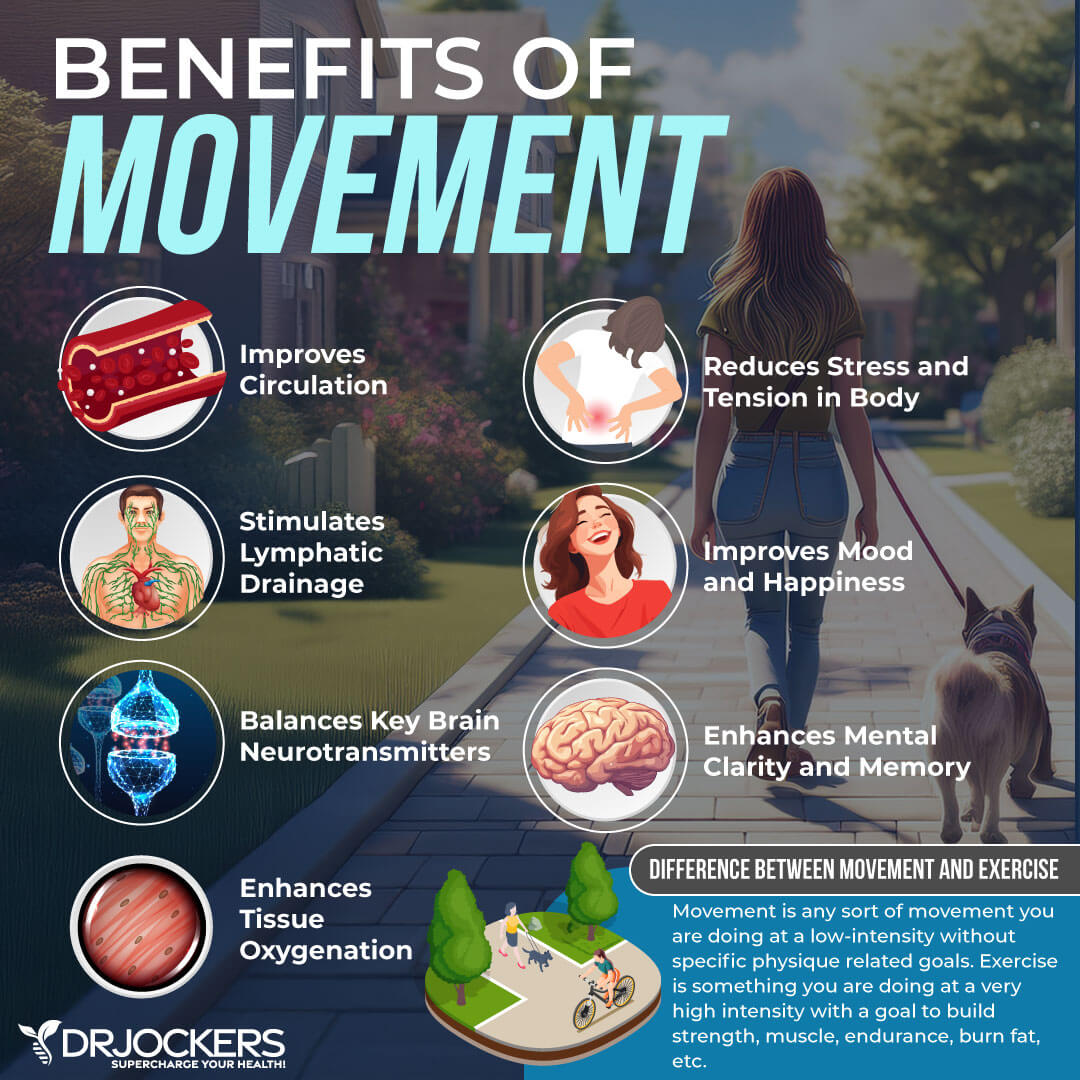
Support Your Microbiome
Your microbiome and blood sugar are closely connected and supporting your gut is important for preventing and reducing blood sugar imbalances and insulin resistance. Make sure gut-friendly, anti-inflammatory, and nutrient-dense diet abundant in veggies, healthy fats, clean protein, and probiotic-rich foods, such as sauerkraut, kimchi, and kefir.
Additionally, I recommend taking a daily probiotic supplement. Probiotics help to optimize your gut health and improve your nutrient absorption while reducing gut related inflammation. When gut inflammation goes down it also reduces inflammatory mediators throughout the body and improves insulin sensitivity (25).

Final Thoughts
Diabetes is a serious issue that affects millions of people around the world. Diabetes is associated with obesity, peripheral neuropathy, kidney failure, fatty liver disease, heart disease, and neurodegenerative diseases.
To stabilize your blood sugar and insulin levels, be sure to follow my tips and natural strategies. You may notice improvements not only in your energy, weight, pain, cognition and mood but also in your overall health.
If you want to work with a functional health coach, I recommend this article with tips on how to find a great coach. On our website, we offer long-distance functional health coaching programs. For further support with your health goals, just reach out—our fantastic coaches are here to support your journey.
Inflammation Crushing Ebundle
The Inflammation Crushing Ebundle is designed to help you improve your brain, liver, immune system and discover the healing strategies, foods and recipes to burn fat, reduce inflammation and Thrive in Life!
As a doctor of natural medicine, I have spent the past 20 years studying the best healing strategies and worked with hundreds of coaching clients, helping them overcome chronic health conditions and optimize their overall health.
In our Inflammation Crushing Ebundle, I have put together my very best strategies to reduce inflammation and optimize your healing potential. Take a look at what you will get inside these valuable guides below!
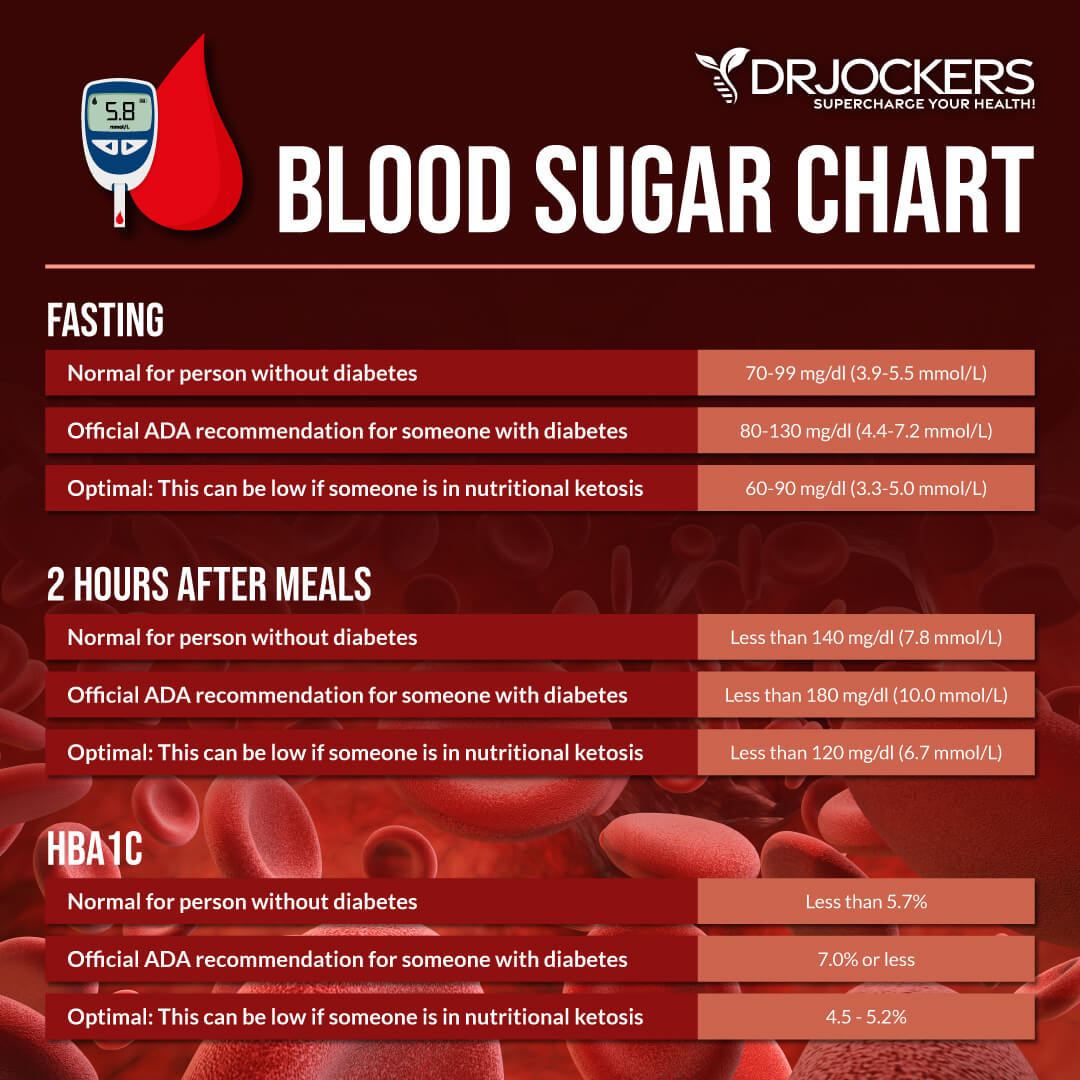
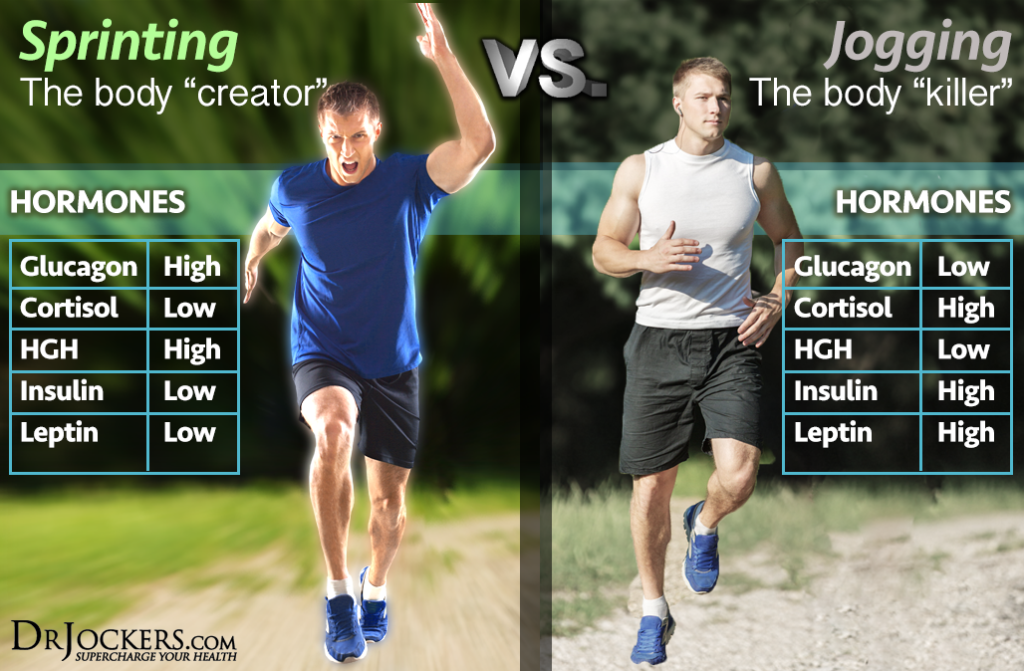
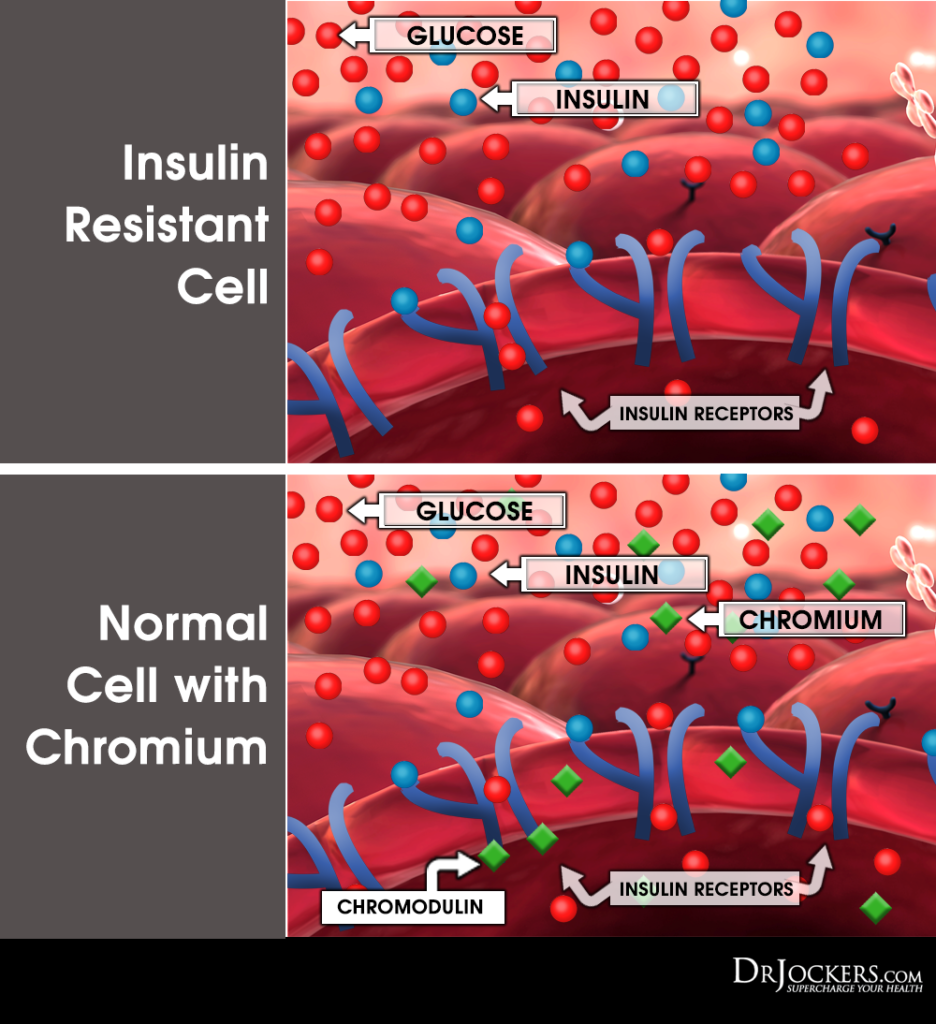




Hello Dr David,
Great information regarding diabetes! Highly appreciate this information.
Being a conventional medicine doctor, back in medical school, we were taught that genetics play a major role in etiology of diabetes mellitus. And this very fact is deeply ingrained into the minds of conventional doctors & they impart the same to their patients that if your first degree relative has diabetes you are bound to get it and bear it for the rest of your life. Moreover, they give a sense of complete haplessness.
Based on this, they further re-iterate that diabetes is a chronic and progressive degenrative disease.
In your article, you aim to show complete remission of diabetes which I very much appreciate.
After complete remission of diabetes using the functional medicine approach, is there any chance of relapse of the problem due to genetic predisposition?
Thanks.
Regards,
Dr Prakash Chhajed
Hey Dr Prakash,
Thanks for writing. There is absolutely a chance of slipping into relapse due to genetic predisposition and poor lifestyle. The individual must maintain the healthy lifestyle habits to prevent the disease process.
Thanks a lot Dr David.
My husband was shockingly diagnosed with Type 2 diabetes in 2017. He had no other health problems and looked to be a fit 50 year old. His doctor put him on metformin but we wanted more information and hope. Fortunately, we found this information on diabetes reversal and Dr. Mowll and Dr. Jockers. In less than 3 months, my husband’s diabetes was completely reversed. His regular doctor has confirmed this with lab tests and shook my husband’s hand for doing the work to reverse his diabetes. My husband has been diabetes free since 2017 and we give all the credit to these wonderful doctors who are spreading the word and taking the time to develop and provide these educational programs. I recommend everyone who has received the heartbreaking diagnosis of diabetes to sign-on and reverse your diabetes now.
This is so great to hear Sheryl! Super happy for you guys!! Blessings!
When you say that diabetes is reversible does that mean that I’ll be able to eat healthy carbs such as sweet potatoes at some point without my blood sugar going way up as it does now? I’ve been eating healthy low carb for years but even an apple or a sweet potato will raise my blood sugar to 180. I follow all the recommendations in this article. Is there something else I need to look in to? Thanks!
Yes that is correct. Type II diabetes is reversable, and most people are able to improve their insulin sensitivity to where they can consume healthy, whole food-based carbs in moderation. Once you improve your mitochondrial health, insulin sensitivity, gut microbiome and build healthy muscle mass you can handle some healthier carbs.